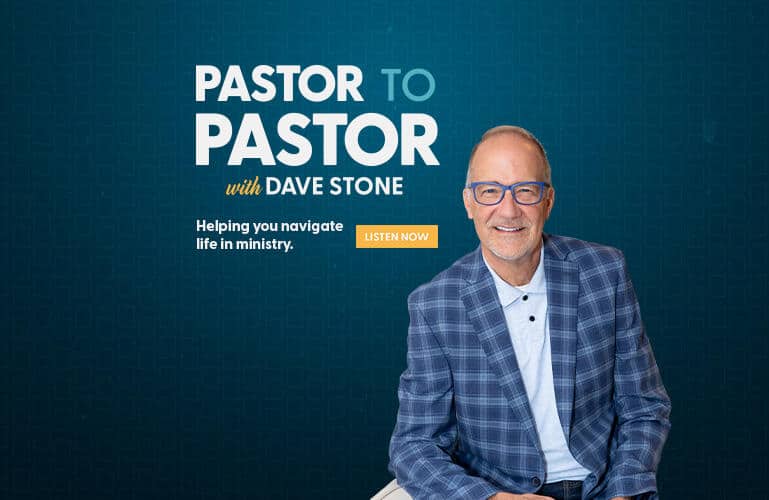AI, Sermons, and Pastors
Estimated reading time: 4 minutes
What’s good, what’s right, and what’s impactful
The rapid evolution of technology has brought artificial intelligence (AI) to the forefront of many fields, including ministry. While pastors have long relied on technological tools for outreach and communication, AI provides opportunities to enhance sermon impact, streamline workflows, and connect with congregations in new ways. This article explores how AI can amplify ministry efforts, focusing on innovative tools and practical applications that pastors are already using effectively, but employing in ethically appropriate ways.
Multiplication potential of sermons
Every week, pastors invest countless hours in crafting messages rooted in Scripture, guided by the Holy Spirit, and contextual for their congregation. We want more, not less of that, and any tool that moves pastors away from those three things should be rejected.
Traditionally, the impact of these sermons would end on Sunday. However, AI enables sermons to continue ministering long after delivery. AI applications can transform sermon content into social media-ready clips, discussion guides, devotionals, and blog posts. This ensures that key messages are accessible to a wider audience throughout the week. That multiplies the impact on work already (faithfully) done. I use (and partner with) SermonShots for this, and I’ve published a series on how I do that here.
Pastors can also multiply sermon impact by ethically using AI to sharpen their message. One pastor told me he uses it to check the grammar in his notes; which I think is great (and quite transparent!)
Another pastor shared how AI enhanced his sermon preparation process, helping to distill lengthy points into concise, memorable phrases. In my case, I sometimes ask an AI tool to find examples or (true) stories that illustrate the point. (If you are my age, you might remember having this on your shelf.)
Paul Lee Tan’s hardcover book is still on my office shelf at Talbot, but I stopped using it when QuickVerse Bible Illustrator replaced it! (It’s for sale on eBay!)
Today, I use AI for that sort of task—tools like ChatGPT, or AI tools inside other programs like the new Logos Bible study platform. With Logos, for example, I can use Logos responsibly and appropriately in my sermons because it’s pulling from my work in the app and my own personal library, and with appropriate citations.
In short, AI-assisted tools like this empower pastors to focus more on what only the pastor should do — create messages rooted in Scripture, guided by the Holy Spirit, and contextual for their congregation — while using tools to help sharpen the message, doing research and finding illustrations, and increasing its reach through multiplication.
Maintaining control and personal touch
AI tools excel at amplifying a pastor’s work, but they are not replacements for spiritual discernment and personal effort. For instance, while AI can identify key quotes or moments for sharing, pastors maintain full control over edits and customization. This balance ensures that AI enhances rather than overshadows the unique voice and vision of each ministry. Additionally, pastors should remain involved in the creative and theological processes of their ministry work. AI might suggest sermon outlines or provide illustrations, but the spiritual formation that occurs during study and prayer cannot be outsourced. Church leaders must ensure that AI remains a supportive tool rather than a substitute for their calling. And, anything that AI tells you when drawing from outside your message — quotes, stories, whatever — needs to be verified. AI is often wrong.
Addressing ethical considerations
As AI becomes more integrated into ministry, ethical questions arise. AI relies on vast datasets, and its outputs may inadvertently include errors, biases, or uncredited content. Pastors must use discernment to ensure that any AI-generated material aligns with biblical truth and is ethically employed.
Looking ahead: the future of AI in ministry
AI’s role in ministry is evolving, with new tools continually emerging. The key is thoughtful integration that complements rather than replaces the human elements of ministry. By leveraging AI to handle routine tasks and enhance resource creation, pastors can dedicate more time to their congregations, deepening relationships and spiritual impact.
Technology has always played a role in spreading the Gospel, from the printing press to radio broadcasts. AI is the next step in this tradition. When used wisely, it can help church leaders extend their reach and multiply their ministry, ensuring that the timeless message of Christ continues to resonate in an ever-changing world.
©2025 Ed Stetzer. All rights reserved. Used with permission.
About The Author

Ed Stetzer
Ed Stetzer, Ph.D., is the Dean and Professor of Leadership and Christian Ministry at Talbot School of Theology at Biola University. Stetzer has planted, revitalized, and pastored churches; trained pastors and church planters on six continents; and has written hundreds of articles and a dozen books. Stetzer serves his local church, Mariners Church, as Scholar in Residence & Teaching Pastor.









